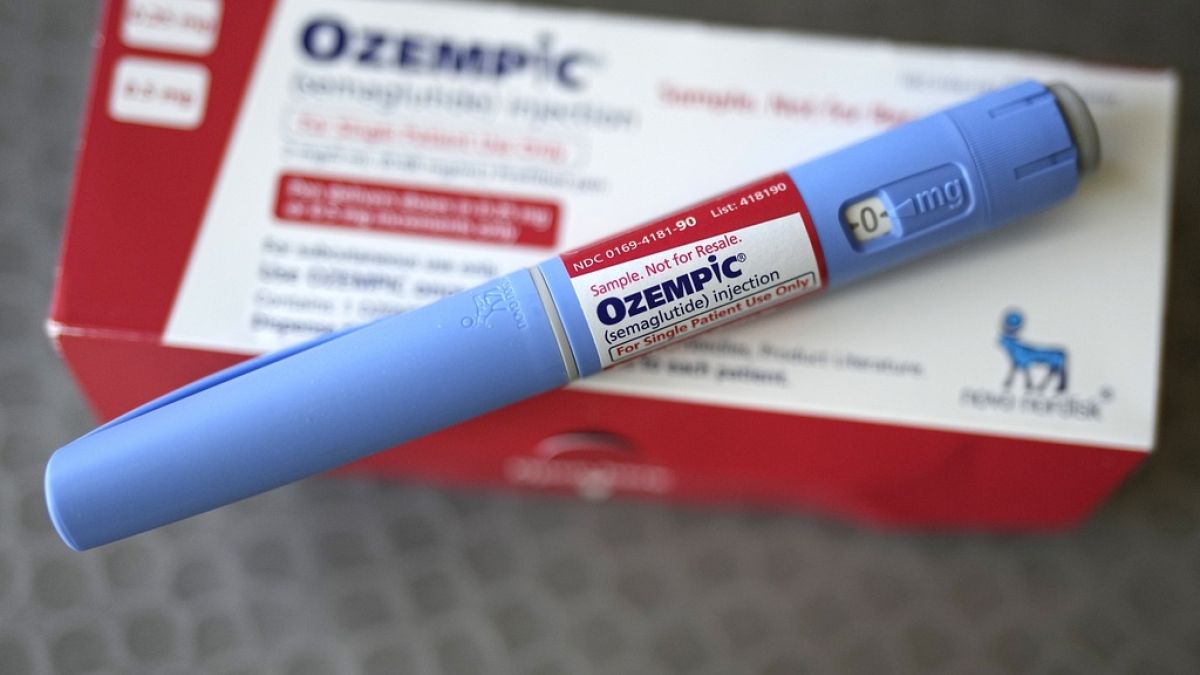By Euronews
Published on
08/08/2025 – 9:43 GMT+2
ADVERTISEMENT
Portugal is restricting doctors’ ability to prescribe blockbuster weight loss drugs and monitors that track blood sugar levels, over concerns that they are being misused.
As of Friday, only doctors from four medical specialties will be able to prescribe glucose sensors and drugs like Ozempic, Wegovy, and Mounjaro, which are known as glucagon-like peptide-1 (GLP-1) receptor agonists.
Used to treat type 2 diabetes and obesity, the medicines help people lose weight by mimicking a hormone that makes them feel full for longer.
The injectable drugs are in high demand, though, which has led to availability problems on the market.
This is the case with Ozempic from the Danish laboratory Novo Nordisk. Ozempic is only approved in Portugal to treat type 2 diabetes, but it is highly sought after for weight loss.
Mounjaro (Eli Lilly) and Wegovy (Novo Nordisk) are approved for both diabetes and obesity. In the first four months of 2025, Portuguese consumers spent around €21 million on these medicines.
Now, only doctors from the approved specialties – endocrinology and nutrition, internal medicine, paediatrics, and general and family medicine – will be able to prescribe them.
Glucose sensors have also been in high demand by non-diabetics, causing a shortage of these monitors in pharmacies. According to the Público newspaper, they are prescribed by doctors who do not work with diabetes patients, and are highly sought after by dieters, athletes, influencers, and even for use on animals.
Portugal’s Ministry of Health posted the regulation in April, warning of “recent reports of improper access to and use of these same technologies, which have jeopardised their availability to those who actually need them”.
“This decree aims to regulate and correct these distortions, promoting effective and adequate access to these essential health tools,” the ministry said.
The president of the Portuguese Society of Diabetology (SPD) praised the measure, but says it is late and may not solve the problem of difficult access to these medicines.
“We’re waiting to see if [the measure] will simplify or facilitate access,” said João Raposo, speaking to the Lusa news agency.
“I personally have some doubts, because I have the idea that the number of prescriptions outside of these specialties is not significant,” Raposo added.
He said that diabetics and doctors are not opposed to these drugs being used to treat obesity. But there are “anomalous prescriptions and a lack of monitoring of these people,” he said.
“Health cannot be subject to the laws of the market, because we know that it is very tempting for this population, which is desperately looking for solutions. The market has worked and we shouldn’t have let it happen,” he added.
GLP-1 agonist medicines are reimbursed by the Portuguese state at 90 per cent. Sensor reimbursement can be as high as 85 per cent.
In addition to prescriptions, there is also a high demand for these medicines on the black market, which can lead to problems with counterfeiting.


